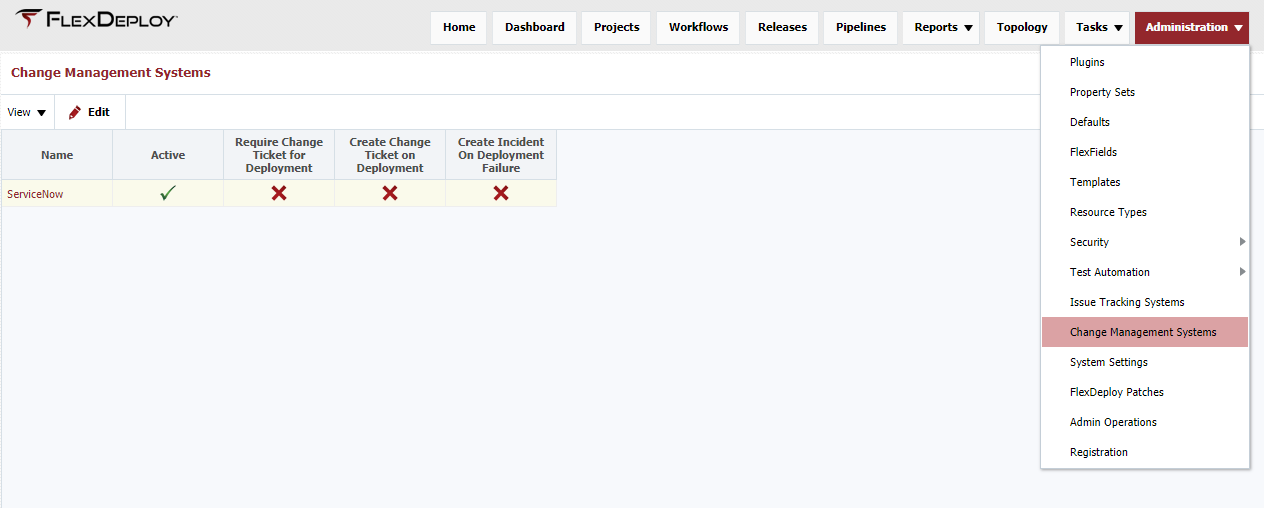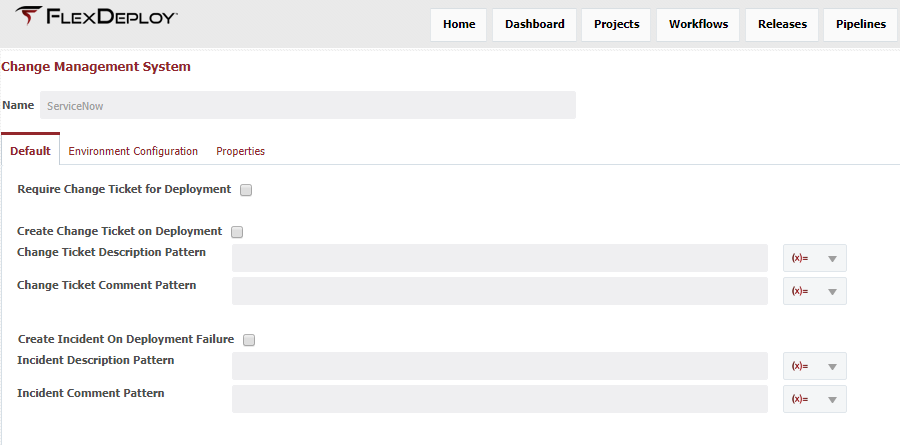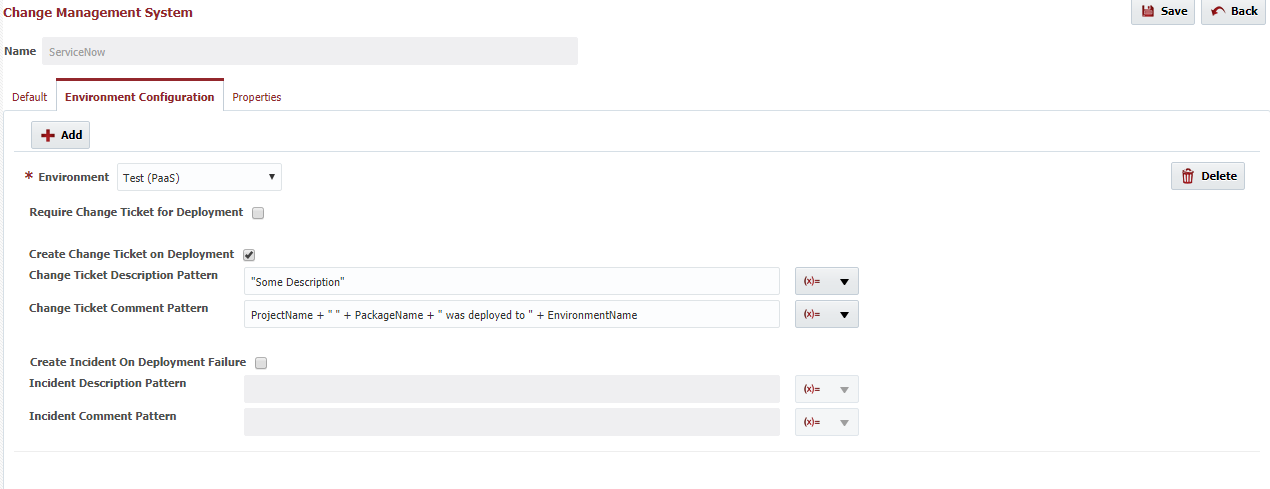Change Management Systems
FlexDeploy offers deploy-time integration with ServiceNow for tying change tickets to deployment requests, and/or creating incidents upon deployment failure. In the future FlexDeploy may support other Change Management Systems, but as of the current release the support is limited to ServiceNow.
The ServiceNow Change Management System offers three levels of integration:
- Require that a Change Ticket must be provided for a deployment request
- Auto-create a Change Ticket whenever a deployment request is submitted
- Auto-create an Incident whenever a deployment execution fails
There are four levels in which Change Management System integration can be configured. The lowest level takes precedence.
- Global - All deployment requests across any folder, application, or project.
- Folder - All deployment requests for applications or projects in the folder (or its sub-folders).
- Application - All deployment requests for the application, or any of its projects.
- Project - All deployment requests for the project.
- Release - All deployment requests for the release.
All levels also allow configuration by environment (e.g. require a change ticket only for Production).
To configure the integration at the Global level, select the Administration->Change Management Systems menu item.
Select ServiceNow and click the Edit button.
The Default tab provides configuration for the Global scope, meaning it applies to all deployment system-wide. One or more of these options may be selected.
- Require Change Ticket for Deployment - When submitting deployment requests, a user is required to specify a valid ServiceNow Change Ticket number.
- Create Change Ticket on Deployment - When a deployment request is submitted, a Change Ticket is automatically created within ServiceNow.
- Create Incident on Deployment Failure - Whenever a deployment request fails, an Incident will automatically be created within ServiceNow.
When choosing Create Change Ticket on Deployment you have the option of providing a Groovy expressions which calculate specific fields to set on the generated Change Ticket.
| Field | ServiceNow Change Ticket Mapping |
|---|---|
| Change Ticket Description Pattern | Description |
| Change Ticket Comment Pattern | Short description |
When choosing Create Incident on Deployment Failure you have the option of providing a Groovy expressions which calculate specific fields to set on the generated Change Ticket.
| Field | ServiceNow Change Ticket Mapping |
|---|---|
| Incident Description Pattern | Short description |
| Incident Comment Pattern | Description |
All Groovy script fields have access to the following variables, and can be selected using the drop-down on the right side of the field:
| Field | Description |
|---|---|
| EnvironmentName | The name of the target environment. |
| PackageName | The package name requested for deployment. Same as ProjectVersion for full deployments. |
| ProjectName | The name of the project requested for deployment. |
| ProjectVersion | The project version which was requested for deployment. |
| StreamName | The stream from which the project version was built from. |
| WorkflowRequestor | The FlexDeploy username which requested the deployment. |
Example Groovy expressions
- "Deployment request to " + EnvironmentName + " for project " + ProjectName + " by " + WorkflowRequestor
- "Deployment for " + ProjectName + " failed in " + EnvironmentName
- "Simple String"
The Environment Configuration tab allows configuration by environment. Click the Add button to add a new configuration, and select an environment. This overrides any configuration on the Default tab for the selected environment.
The remaining configuration options are exactly as defined for the Default configuration. Optionally, click the Add button again to add configuration for other environments.
The Properties tab lists the metadata which is required for this Change Management System. Values for these properties will be provided when you create a Change Management Instance in the topology. See Creating/Editing a Change Management Instance,
- style




